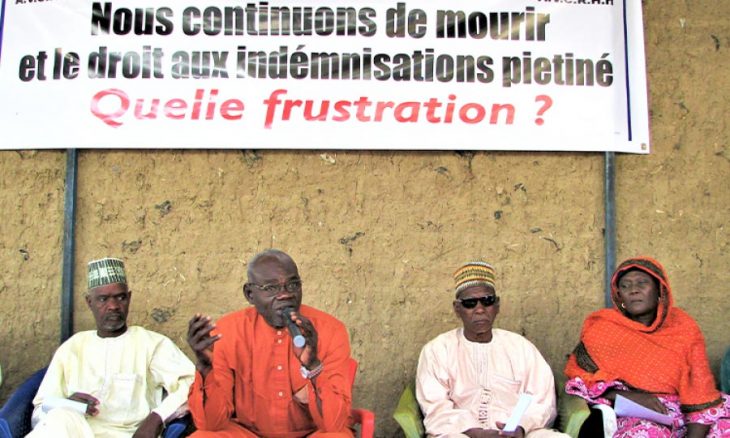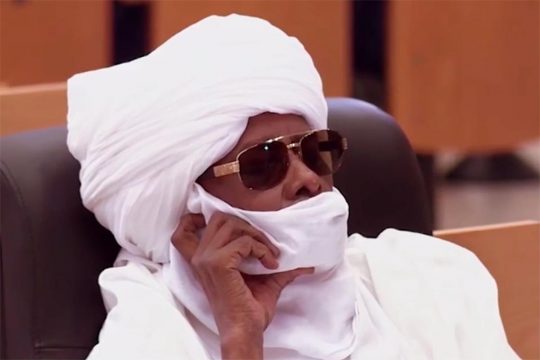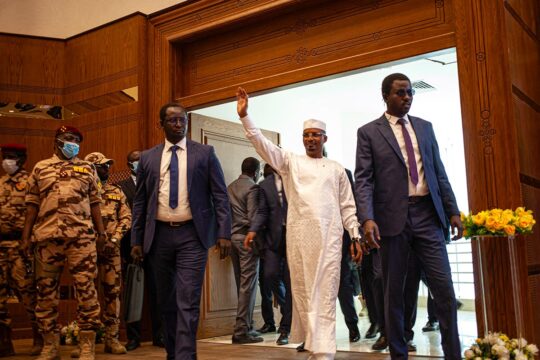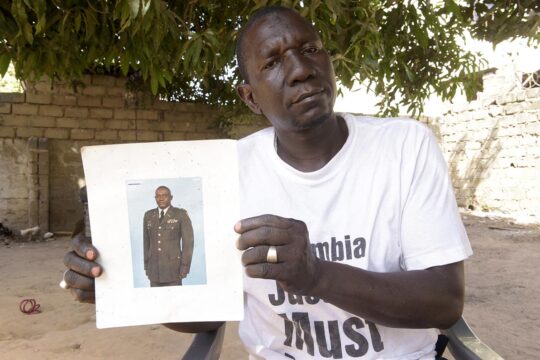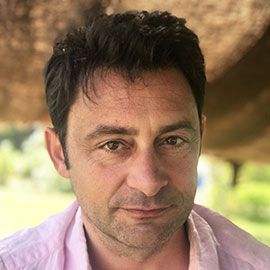Transitional justice is certainly on the menu in Chad, at least on paper, after the official inauguration on October 10 of "transitional" president Mahamat Idriss Déby, head of the military junta that succeeded his father, who came to power in a military coup by overthrowing Habré in December 1990. Déby's son has thus given himself two more years to "restore constitutional order" and – although he has not said so -- prepare to run for presidential elections in a dynastic logic denounced by the opposition.
In so doing, Déby had to commit to implementing the recommendations of the "National Dialogue", the "inclusive and sovereign" consultation process that designated him to ensure the continuity of power. The son of Idriss Déby - who died in 2021 after 30 years as head of state - should, according to the conclusions of the Dialogue, initiate "reflection on the creation of a truth, forgiveness, reparation, and reconciliation commission" and "establishment of a commission of inquiry to elucidate cases of disappearances," although it does not specify the periods to be considered.
Compensating victims and returning Habré's body
More concretely, the "heir" should, if he follows these same recommendations, "execute court decisions relating to the compensation of victims of the regime of former president Hissène Habré", who was in power from 1982 to 1990. He should also examine the "modalities for repatriation of the remains" of Habré, who died in Senegal in 2021, and make a gesture of reconciliation towards his ethnic group, the Goranes. After his fall, Habré was exiled in the Senegalese capital Dakar, where 25 years later a special court sentenced him to life imprisonment.
At the end of this trial before the Extraordinary African Chambers (EAC), his victims obtained significant reparations (82.290 billion CFA francs - 124 million euros), but they have not been paid. Until a year ago, Habré's villa seized in Dakar had not been sold, and the Compensation Fund for Victims, whose management has been entrusted to the African Union (AU), remained an empty shell. But Habré's death on August 24, 2021, reignited the fight of the victims, who called for a "donors' conference" in Addis Ababa at the AU headquarters. It was the AU that had asked Senegal to try Habré "in the name of Africa", and the pan-African organization carried out a mission to Chad soon after his death to set up the Fund.
Since then, nothing has happened, except for the Fund administration moving to the Chadian capital Ndjamena and the appointment of a board of directors composed of victims' representatives. On September 19, the Fund received a letter on presidential the letterhead announcing that the President of the Transitional Military Council - Déby Jr. - had allocated 10 billion CFA francs (15.2 million euros) to the Fund and requested "its bank account details", and asserting that the head of state, "within the framework of the national reconciliation process (...), is anxious that the compensation of the victims should start as soon as possible”.
"This is part of the new young president's efforts to settle the past, to try to turn the page on certain issues and do what was not done by his father," explains Thierry Vircoulon, a researcher at the French Institute of International Relations and specialist on central Africa. He thinks that "within the framework of this policy, they can indeed do both: pay compensation and bring back the body, to satisfy both Habré’s family and the victims. But these two things must be linked, and this will depend essentially on the funds available in a state that is in permanent financial crisis.”
"It’s being taken seriously”
Clément Abaïfouta, one of the main representatives of the victims and a member of the Fund's board of directors, says he was threatened in September by a Habré supporter during the National Dialogue. However, the man who told the story at the Habré trial of his 1985 arrest by the political police believes in the promise of reparations.
"I passed a draft resolution during the Dialogue saying that as long as the victims are not compensated, we will not accept the repatriation of Habré's body,” he explains. “This caused sparks to fly. The entire Zaghawa ethnic group [to which Déby belongs] sided with us, but the most radical officers did not want to hear of it. On the other side, there are the supporters of Mahamat Noury, a rebel leader and direct cousin of Habré, who demanded it as a precondition for the Doha peace agreement [signed on August 8]. So I'm not against repatriating the body, but if the victims are not compensated, they will have to reckon with us.”
Abaïfouta recalls that in addition to the money pledged now by Chad, the AU “has already allocated $5 million to the Fund and that there is some money left from the EAC budget”. "It’s being taken seriously,”he says. “The National Transitional Council has been talking to us about it since the beginning of the year. They need to make a gesture, for the pressure is coming from everywhere: from us inside and internationally." Abaïfouta mentions the role played, in his opinion, by Senegalese President Macky Sall, who came to Ndjamena in September as chair of the AU and who had taken the historic decision to try Habré. "I said to Macky Sall it was Dakar that was our battlefield, it was Dakar that made commitments [in judging Habré], so I believe that Senegal has an interest in seeing this finished properly."
Limited amounts
"A year ago, I didn't give this much of a chance. But it’s thanks to the tenacity and perseverance of the victims -- they are in the street, they are there with pots and pans, demonstrating and mobilized," says Reed Brody, an American lawyer who fought with the Chadian victims to have Habré tried. He recalls, however, that Chad was ordered to pay reparations in a national trial of former members of the DDS, Habré's political police, and that it has never paid.
The amounts available are also limited. According to his calculations, if the funds promised by Chad are added to those of the AU, they come to only about 2,700 euros per victim, or one sixth of the reparations awarded by the EAC. Plus the question of how the money will be distributed remains unanswered, due to the lack of transparency of the Fund, and this is potentially explosive in Chad. "Can a fund do this? Yes, but have they given themselves the means to do so, and can the people who manage it do so? That remains to be seen," warns Brody.
Reached by phone in Addis Ababa, Alexandre Ratebaye, a legal officer at the AU Commission chaired by Chadian Moussa Faki, did not want to specify the composition of the team working for the Fund, whose headquarters agreement was signed in 2019. "They are members seconded from the African Union," he said, "who are working in its representative office in Ndjamena until the building provided by Chad is furnished, equipped, connected. A lot of work has been done. We will try to accelerate the process.”
Ratebaye plans to convene a meeting in N'Djamena "in a few weeks’ time" of the Fund, of which he chairs the Board of Directors, "to decide on the contribution of the Republic of Chad and on the already existing contribution of the African Union”. “These two contributions are not enough. We will have to decide on the modalities for allocating the money to the victims and, more importantly, work on a conference of international donors by the end of the year," he said, without wishing to comment on the availability of the money from Chad. "An announcement has been made, we are taking steps to make it effective.”


